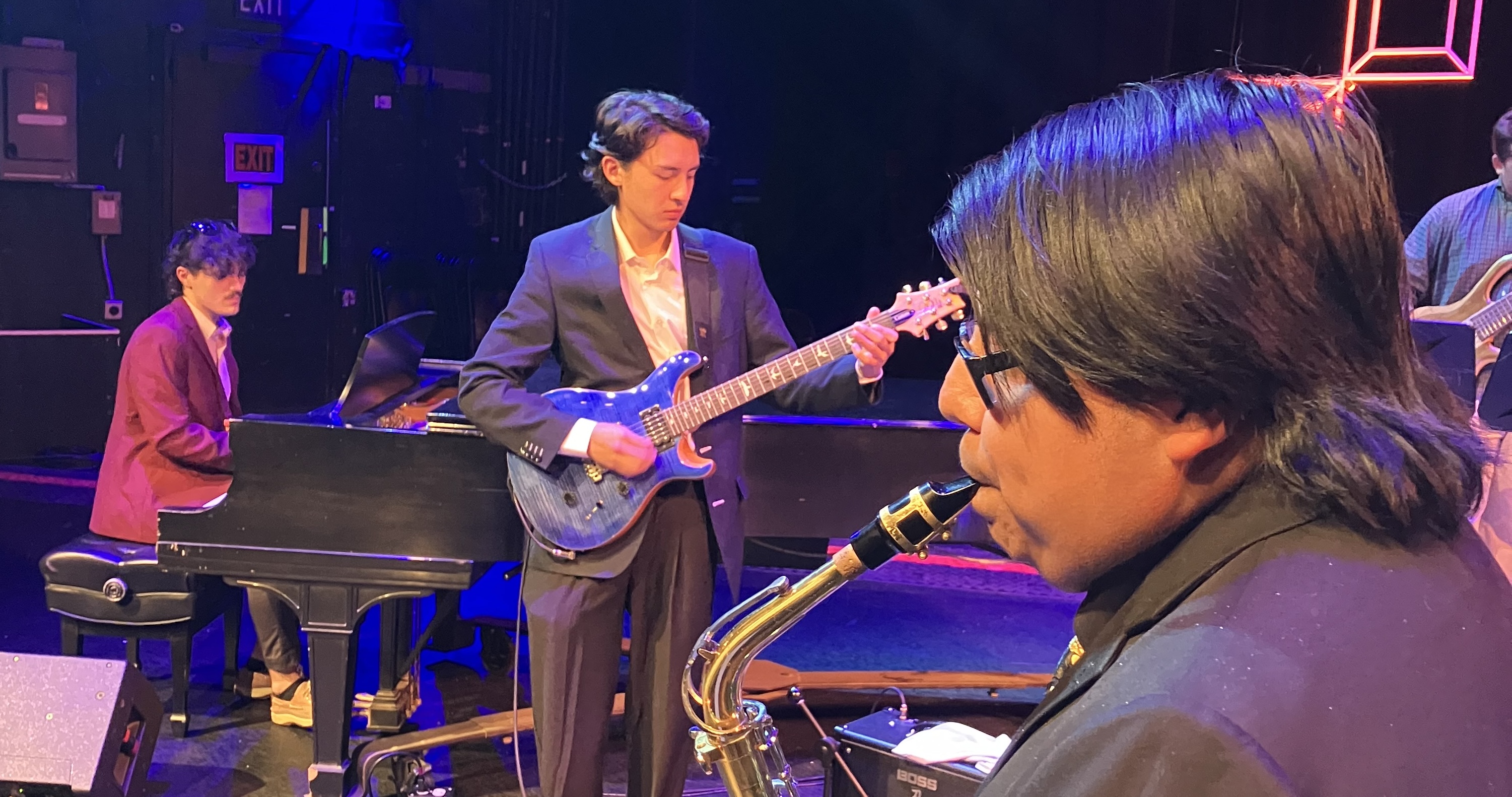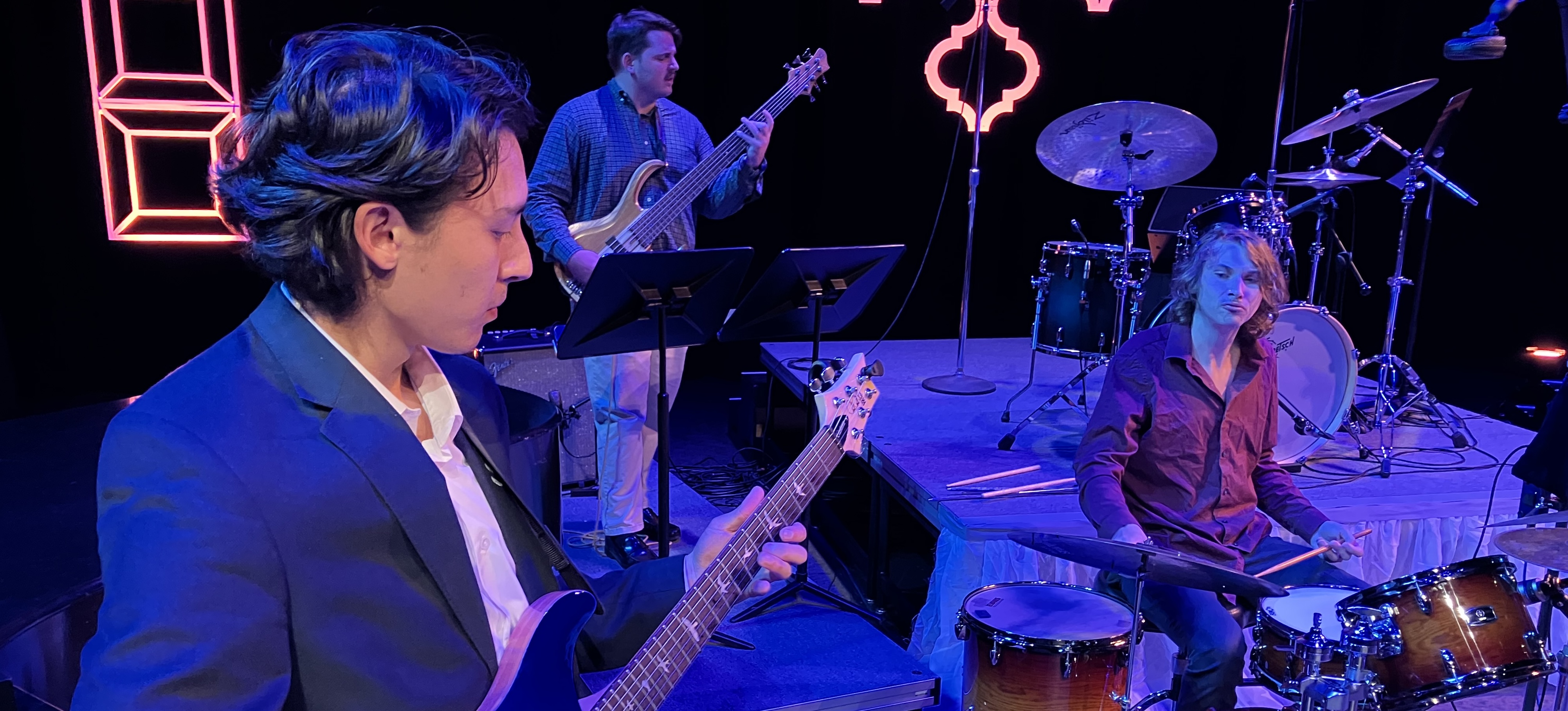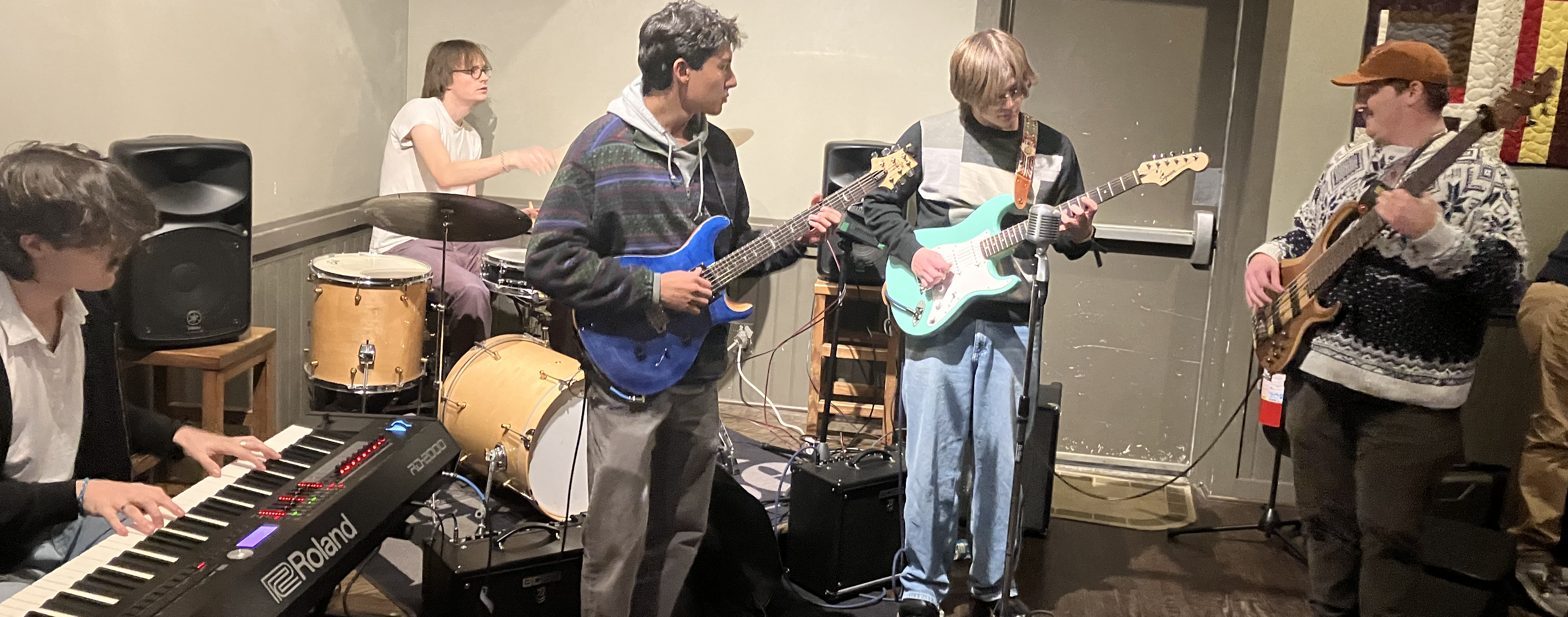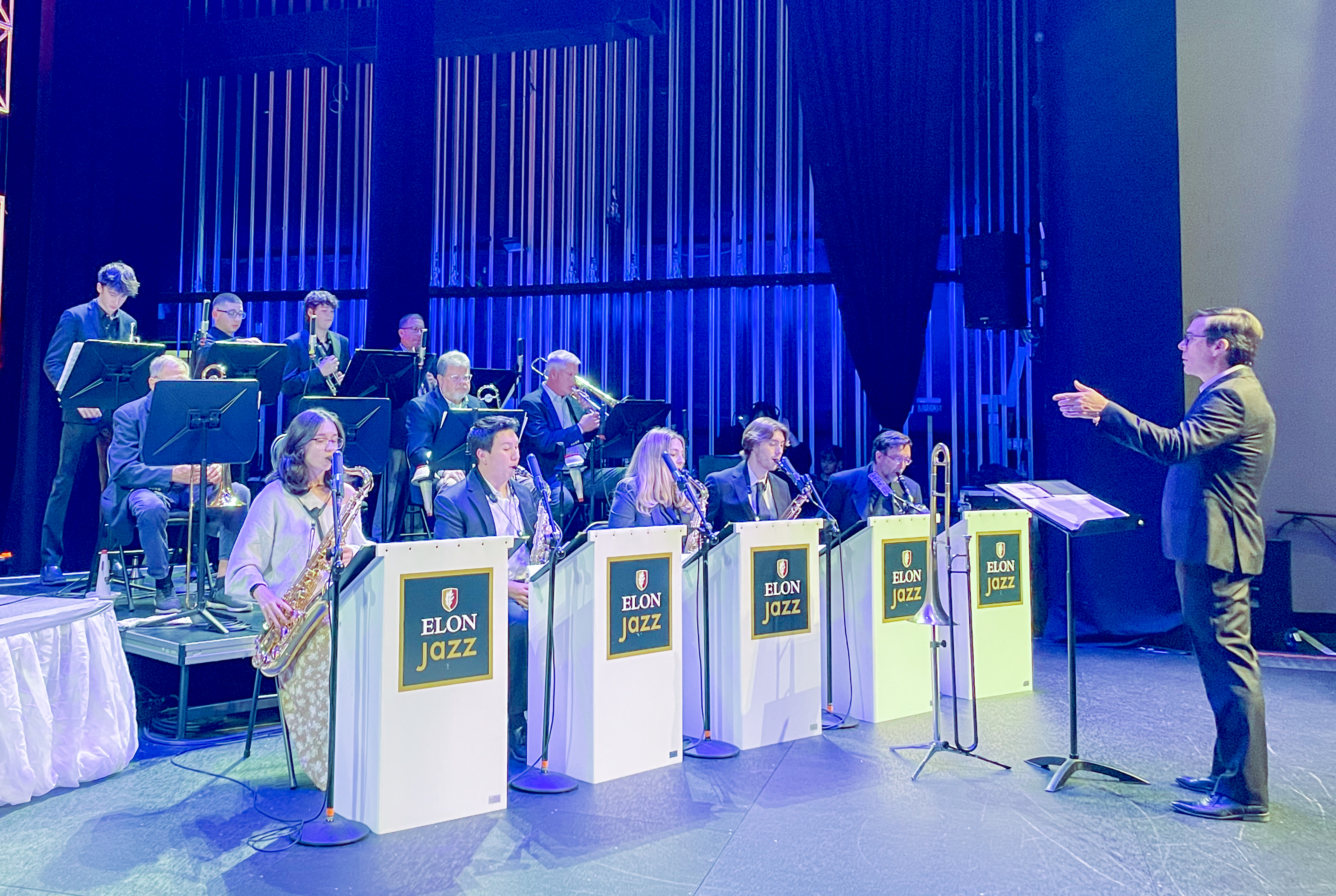- Home
- Academics
- Arts & Sciences
- Music
- Jazz Studies
Jazz Studies

Jazz Studies at Elon
Open to students from all majors, the Elon University Minor in Jazz Studies is intended for students who wish to emphasize the study of jazz in addition to their major area. Classes and ensemble experiences are crafted to help build skills and knowledge in jazz history, jazz harmony, jazz improvisation, and much more.
The Jazz Studies program is designed to provide meaningful musical experiences for all students including music majors AND non-music majors that extend beyond the classroom, with frequent and varied opportunities to perform alongside peers, faculty members, and even world-renowned guest artists. We are committed to mentorship and helping students unlock their creative potentiaLearn How to Join a Jazz Ensemble!Attend an Elon Jazz Event
Mission Statement
The Elon Jazz Studies program is dedicated to nurturing the next generation of creative minds by offering exceptional musical and educational opportunities. Our graduates include professional performers, composers, teachers, and innovators across various disciplines.
At our core, we cultivate a vibrant culture rooted in openness, creativity, and collaboration. Through personalized mentorship, we empower each student to achieve their utmost potential, paving the way for both career success and personal fulfillment.
Committed to adapting to the demands of modern musicianship, we prioritize stylistic versatility, technological proficiency, and entrepreneurial acumen. Our ongoing commitment ensures our graduates thrive in today’s dynamic professional landscape.
We embrace diverse global perspectives, enriching our community with a spectrum of musical and cultural experiences. From campus events to local and international festivals, including our annual Elon Jazz Festival, we provide enriching opportunities for all to enjoy and participate.
Why Jazz Matters
Jazz is unique among the many musical genres taught at universities today. It celebrates individuality within a collective setting, teaching students to navigate a world marked by constant change. By emphasizing both personal expression and group interplay, jazz prepares students to be flexible, creative, and empathetic. It fosters a community where students learn to balance their own voices with those of their peers, developing trust in their decisions and honing their ability to listen and collaborate. This unique combination of cooperation and individuality helps students become quick thinkers, confident in their abilities, and skilled in adapting to new challenges.
Rooted in the African American experience, jazz and blues are more than just musical genres; they are vessels of cultural resilience and storytelling. Jazz’s history of bridging social divides reflects its power to unite people across differences, demonstrating that true freedom arises from discipline and collaboration rather than self-indulgence. By engaging with jazz, students connect with this rich tradition, gaining a deeper understanding of themselves and the world, while also contributing to a broader, inclusive narrative.





